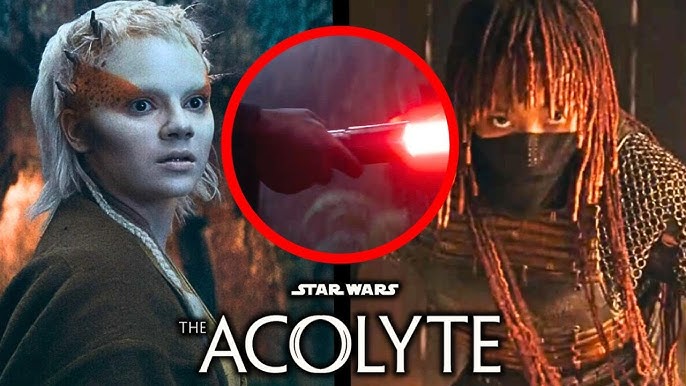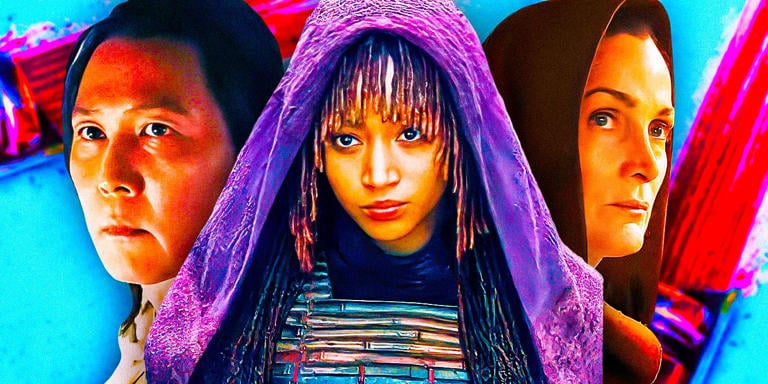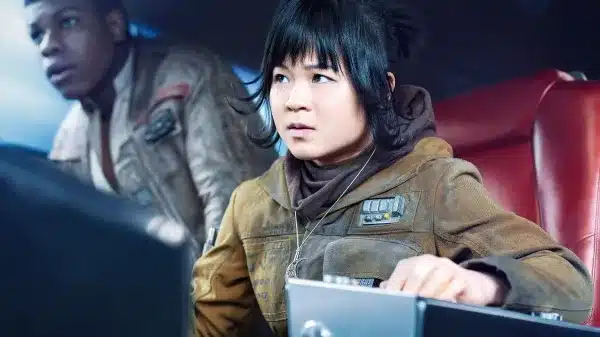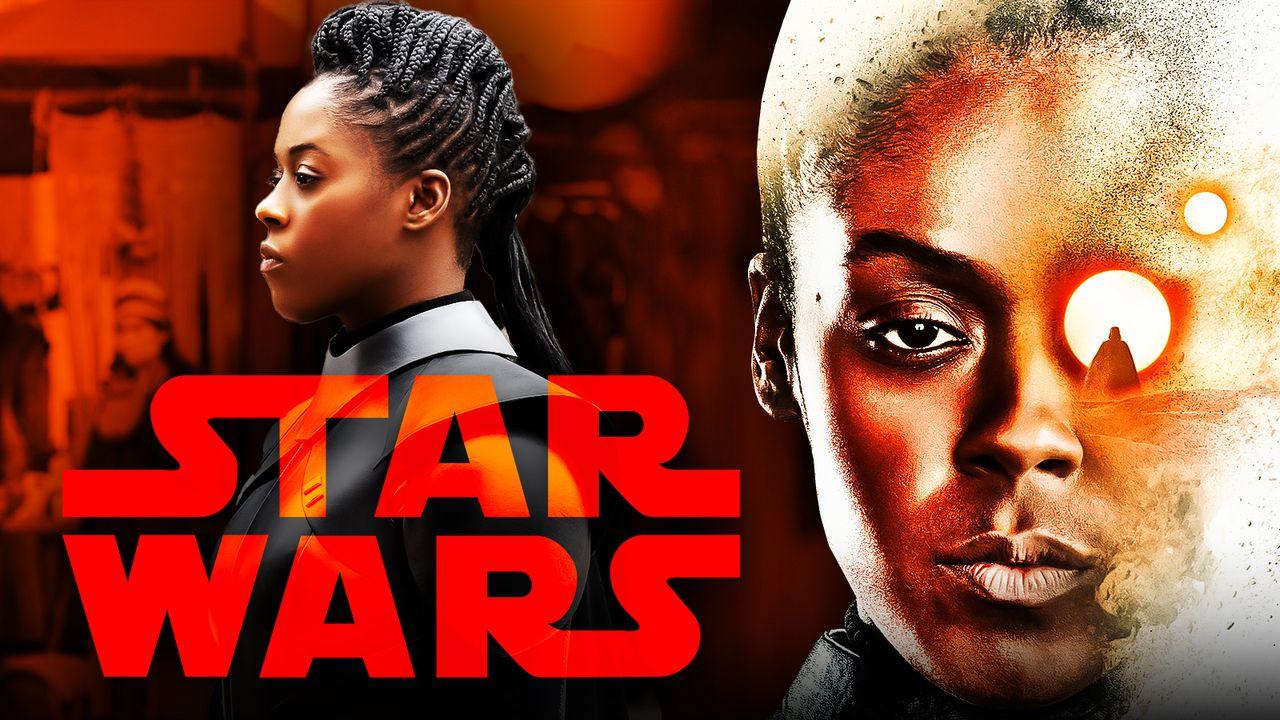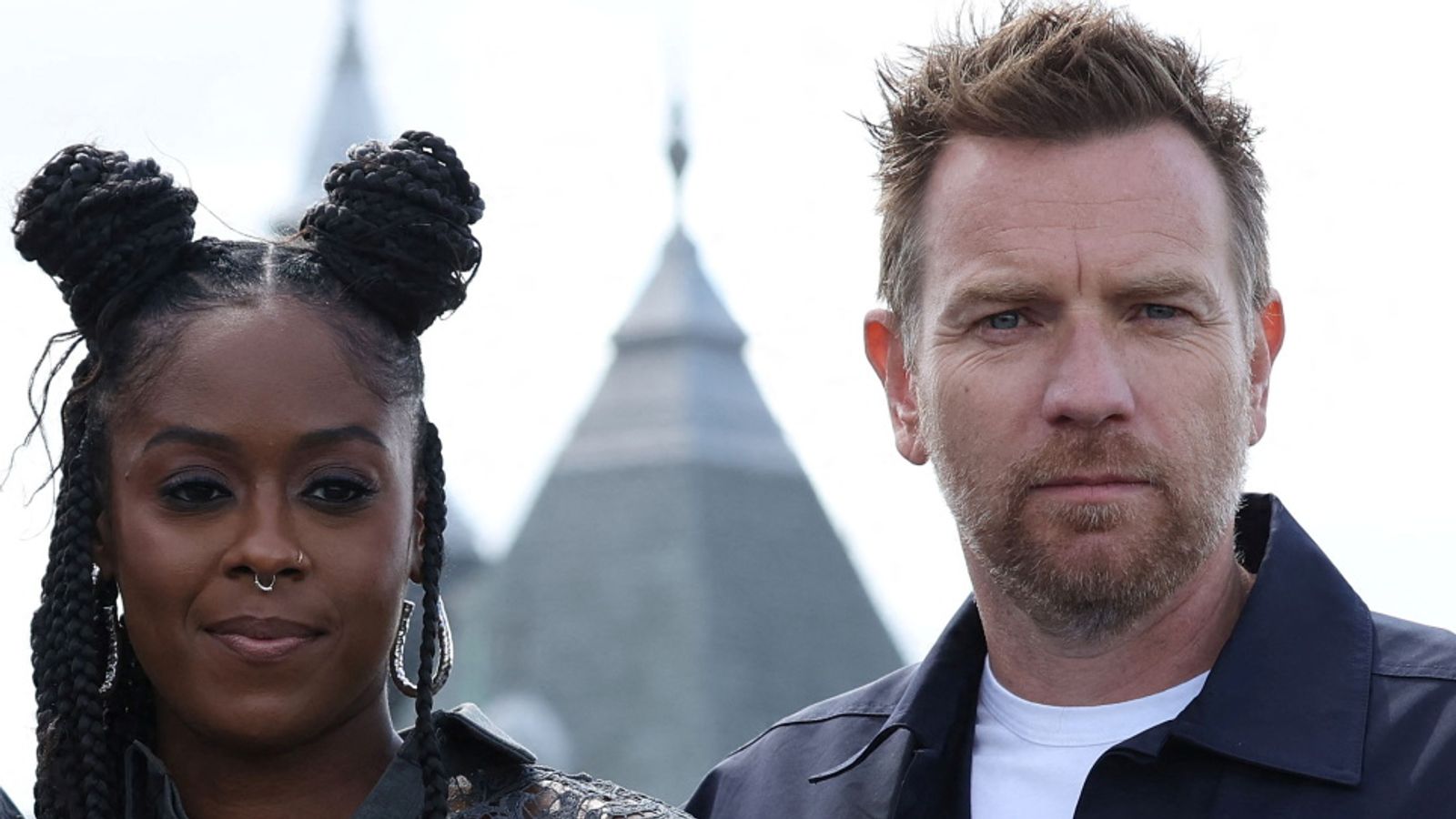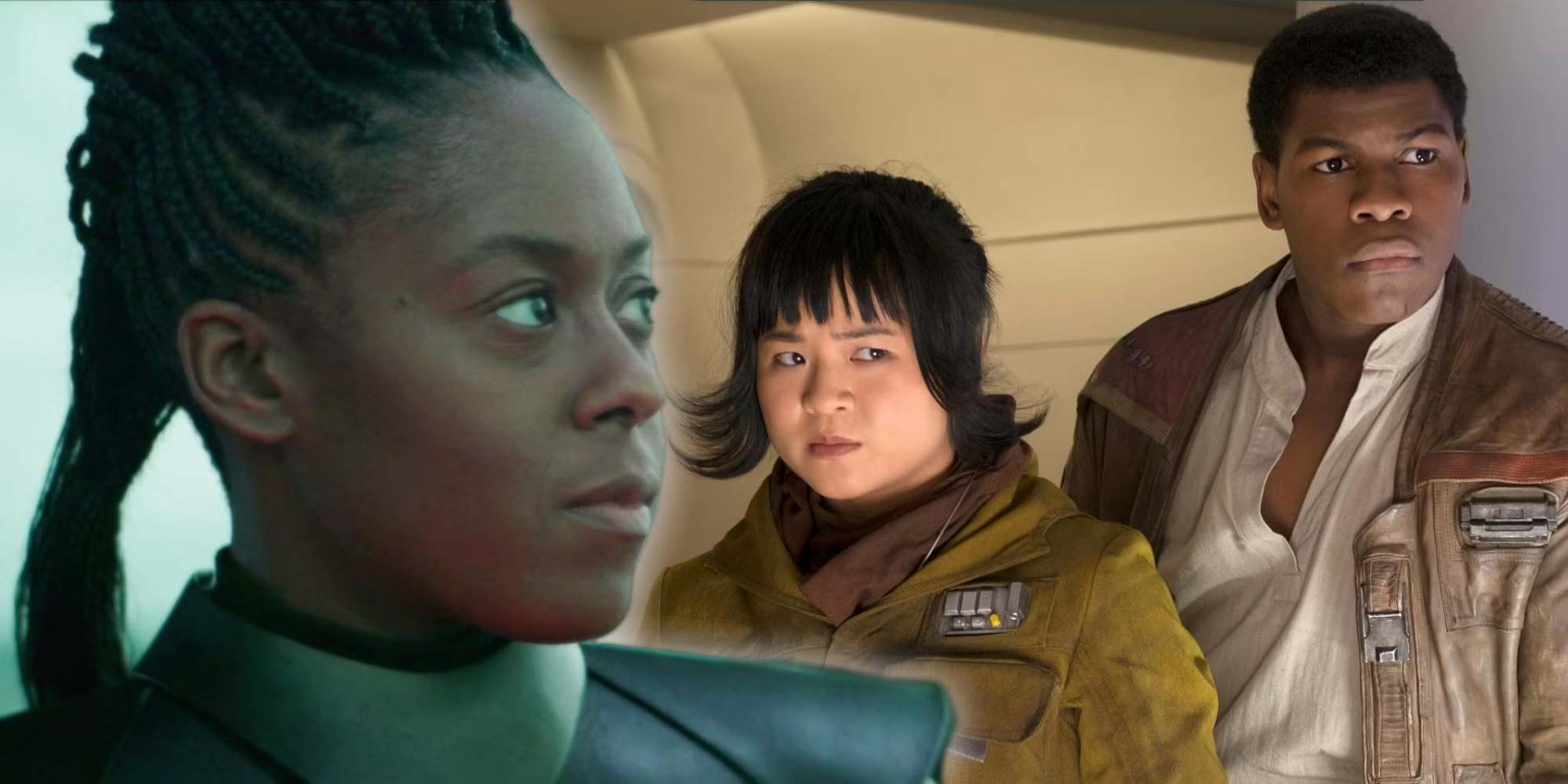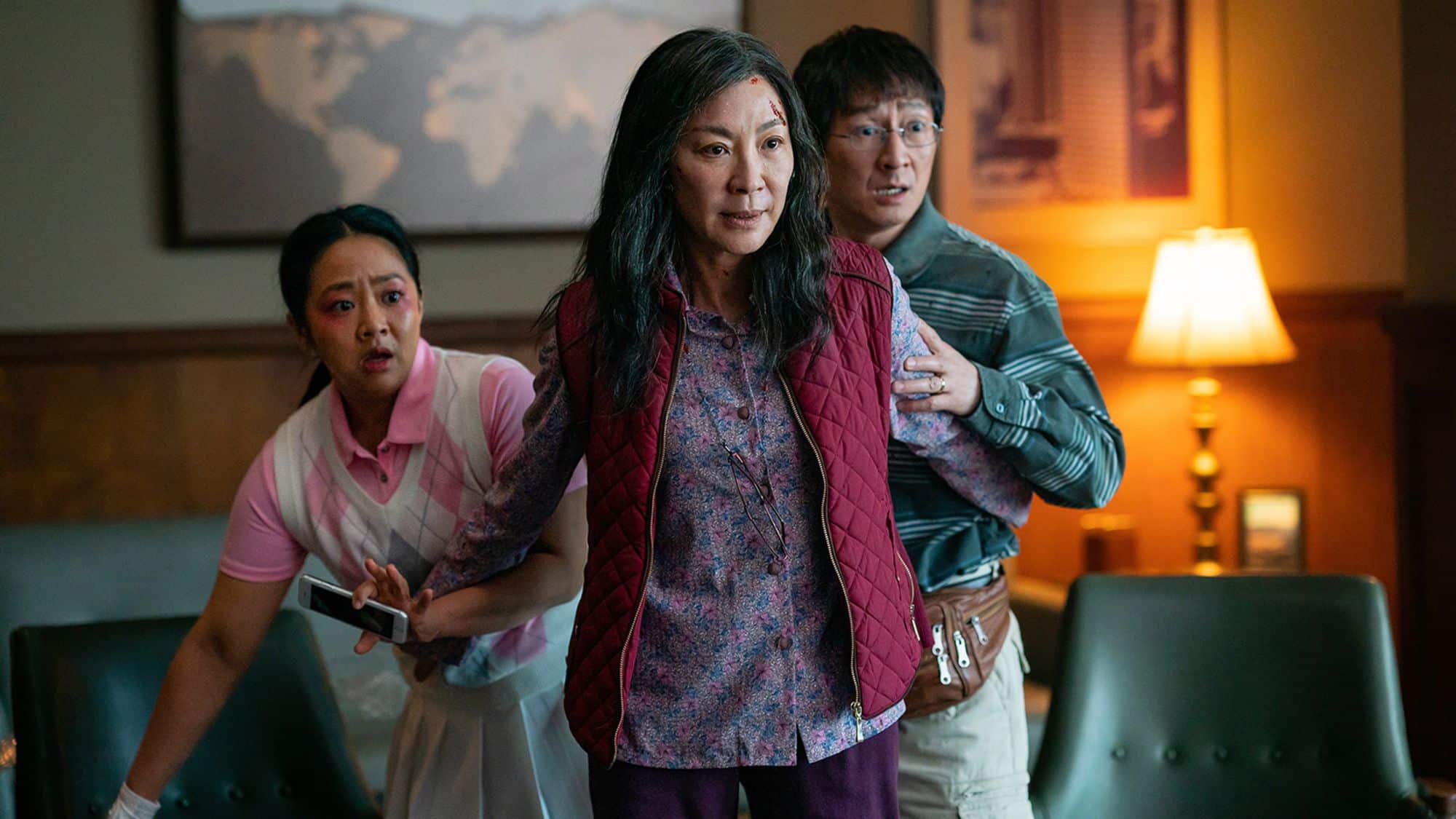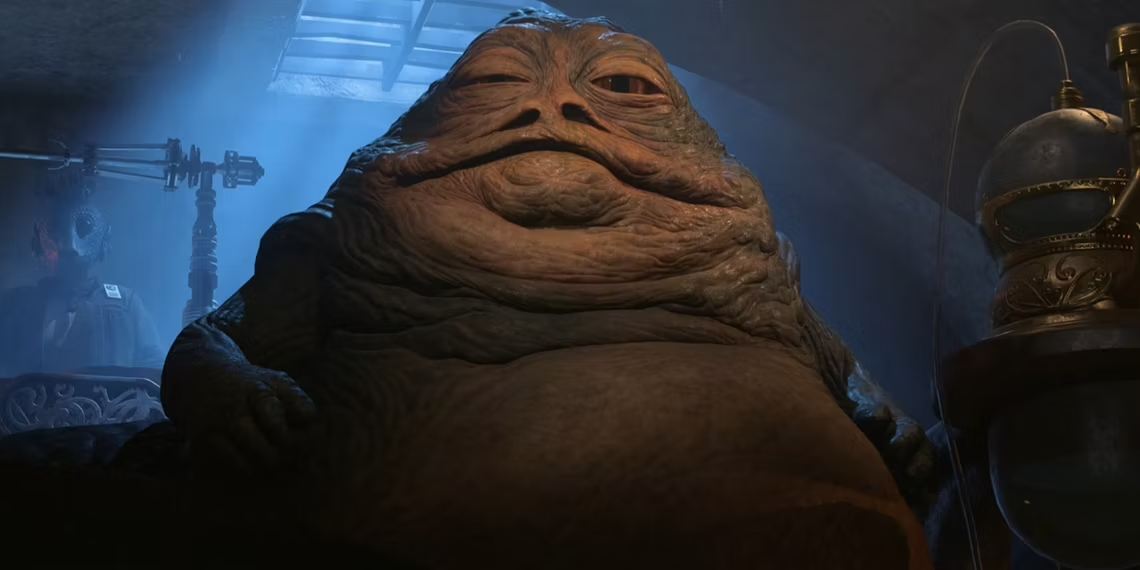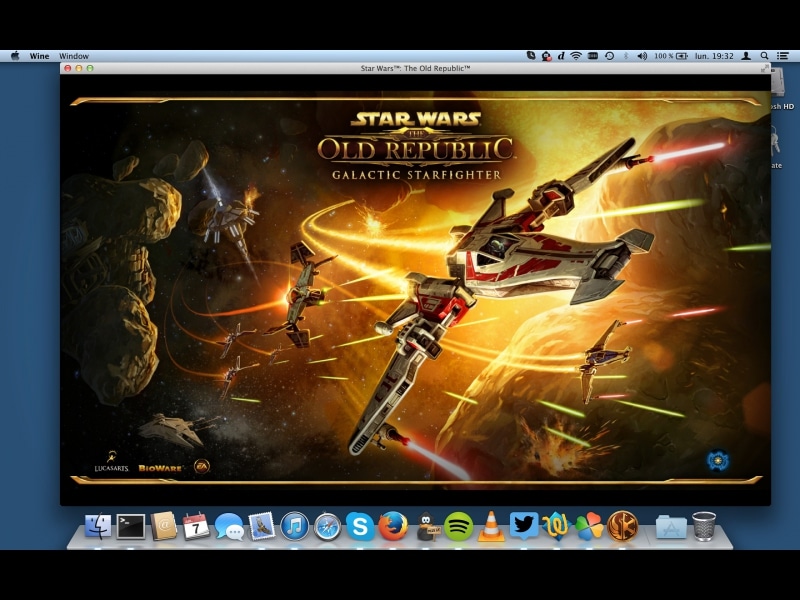The Star Wars franchise, renowned for its epic storytelling and beloved characters, has not been immune to controversy, particularly regarding its efforts to diversify its cast and incorporate progressive themes. This tension is vividly illustrated by the backlash against “Star Wars: The Acolyte,” a new series set in the Star Wars universe.
The Controversy Surrounding ‘The Acolyte’
“Star Wars: The Acolyte” has been a hot topic within the Star Wars community, generating a mix of excitement and controversy. Set in the High Republic era, “The Acolyte” promises to explore a lesser-known period of Star Wars history, focusing on the dark side of the Force. However, much of the discussion around the show has centered not on its plot or setting, but on its casting choices and the broader themes it intends to tackle.
Diverse Casting and Progressive Themes
“The Acolyte” is notable for its diverse cast, including actors of various racial and ethnic backgrounds. This move aligns with a broader trend in Hollywood toward greater inclusivity and representation. While many fans have applauded this shift, seeing it as a long-overdue step toward reflecting the diversity of the audience, others have been less welcoming. Some fans argue that the focus on diversity is a departure from the traditional elements of Star Wars, which they believe should remain unchanged (PsyPost – Psychology News) (theweek).
Resistance from a Vocal Minority
The backlash against “The Acolyte” can be seen as part of a wider pattern of resistance to diversity in media. This phenomenon has been observed across various franchises and has often been fueled by a vocal minority of fans. In the case of Star Wars, this resistance has manifested in various ways, from social media harassment to organized campaigns aimed at undermining the success of more inclusive projects.
Studies have shown that this backlash is often rooted in deeper societal issues of racism and sexism. Research published in PsyPost revealed that fans with higher levels of hostile sexism and symbolic racism were more likely to dislike the newer, more diverse characters introduced in the Star Wars saga. This suggests that the negative reactions to “The Acolyte” may be driven, at least in part, by these prejudices (PsyPost – Psychology News).
Historical Precedents in Star Wars
This is not the first time the Star Wars franchise has faced such issues. Kelly Marie Tran, who played Rose Tico in “The Last Jedi,” faced severe online harassment, leading her to quit social media. Similarly, John Boyega, who portrayed Finn, spoke out about the racist abuse he received and his feeling of being sidelined in the sequel trilogy. These instances highlight a troubling trend where actors of color bear the brunt of fan toxicity (theweek).
The backlash has not been limited to actors. Creators and other personnel associated with more inclusive Star Wars projects have also been targeted. For instance, when Krystina Arielle, the host of a Star Wars YouTube series, faced racist abuse online, the response from Lucasfilm and the broader Star Wars community was crucial in supporting her against the tide of negativity (theweek).
Corporate and Community Responses
In response to the backlash, Lucasfilm and Disney have taken steps to address the toxic behavior within the fandom. They have issued public statements condemning racism and sexism and have shown greater support for their diverse cast and crew. For example, Lucasfilm’s public defense of Moses Ingram, who faced racist attacks after her role in the Obi-Wan Kenobi series, marked a significant moment in the franchise’s stance against bigotry. Ewan McGregor also released a video condemning the harassment, stating that those engaging in such behavior were not true Star Wars fans (theweek).
While these actions have been praised, they have also sparked further debate. Some fans perceive these statements as overreactions or as attacks on legitimate criticism of the films and shows themselves, rather than addressing the underlying racist and sexist motivations of the backlash. This tension reflects the broader cultural struggle over diversity and representation in media.
The Role of Social Media
Social media has played a significant role in both the propagation and the counteraction of this backlash. Platforms like Twitter and Instagram have enabled toxic fans to organize and amplify their voices, often targeting actors and creators with waves of harassment. However, these same platforms have also allowed for swift and widespread counteraction. Public statements from Lucasfilm, support from other fans, and solidarity from the broader community have been instrumental in pushing back against the negativity.
Looking Forward
As “The Acolyte” progresses toward its release, the ongoing conversation about diversity in Star Wars continues to evolve. The show stands as a testament to the franchise’s commitment to inclusivity, even in the face of backlash. The reactions to “The Acolyte” will likely serve as a barometer for the current state of fandom and the broader cultural acceptance of diversity in beloved media properties.
The journey of “The Acolyte” is emblematic of a larger narrative in the entertainment industry—a narrative where inclusivity and representation are becoming central themes, even as they encounter resistance. As Lucasfilm and other studios navigate these waters, their responses and the outcomes of these controversies will shape the future landscape of media and its relationship with its diverse audience.
In conclusion, “The Acolyte” controversy sheds light on the deep-seated issues of racism and sexism that persist in fan communities. While the backlash has been significant, the proactive responses from Lucasfilm and the support from broader fan communities highlight a growing recognition of the importance of diversity and the need to stand against intolerance. This ongoing dialogue will undoubtedly influence the future of Star Wars and the broader media landscape, pushing for a more inclusive and respectful fandom.
Roots of Racism and Sexism in the Fan Backlash
The backlash against “Star Wars: The Acolyte” and other recent entries in the franchise can be traced back to deeper societal issues of racism and sexism. These prejudices have long influenced the reactions of certain segments of the fandom, manifesting in hostility towards diverse casting and progressive narratives.
Historical Context and Precedents
The Star Wars franchise has a history of facing backlash whenever it attempts to diversify its cast. This pattern was evident with the introduction of characters like Rose Tico, played by Kelly Marie Tran, and Finn, portrayed by John Boyega. Tran’s experience was particularly harrowing; she faced relentless online harassment that led her to leave social media in 2018 (theweek). Boyega, too, received racist abuse and criticism, feeling marginalized within the narrative of the sequel trilogy despite being a central character (theweek).
This kind of backlash is not unique to Star Wars. Other franchises have encountered similar resistance when making efforts to be more inclusive. For instance, “The Hunger Games” faced criticism for casting Amandla Stenberg, a Black actress, as Rue, a character described with ambiguous racial traits in the books. Similarly, the casting of Noma Dumezweni, a Black actress, as Hermione in the stage play “Harry Potter and the Cursed Child” was met with backlash from fans who had envisioned Hermione as white based on the movies (theweek).
Psychological and Sociological Insights
Research in social psychology provides insights into why these reactions occur. Studies suggest that fans with higher levels of racism and sexism are more likely to react negatively to diverse characters. A study published in PsyPost found that fans exhibiting greater hostile sexism and symbolic racism showed increased dislike for newer, diverse characters in the Star Wars franchise (PsyPost – Psychology News). This suggests that the backlash is not merely about preserving the integrity of the original material but is also significantly influenced by underlying prejudices.
Stephen Reysen, a psychologist who co-authored the study, noted that the dislike of newer characters was not uniformly distributed across all fans but was particularly pronounced among those with higher levels of prejudice. This indicates that while the broader Star Wars fandom may not endorse racist or sexist beliefs, a vocal minority does, and this minority can significantly influence the public discourse (PsyPost – Psychology News).
Impact of Social Media
Social media has amplified these negative reactions, providing a platform for toxic fans to organize and broadcast their hostility. The anonymity and reach of social media allow for more aggressive and pervasive harassment. This was evident in the cases of Tran and Boyega, where the online abuse was not only persistent but also highly organized, suggesting a coordinated effort to drive these actors away from the franchise (theweek).
However, social media also offers a counterbalance by enabling fans and creators to rally in support of diversity and inclusivity. Public statements from Lucasfilm, declarations of solidarity from other actors, and supportive fan campaigns help combat the negativity. These actions underscore the importance of standing against bigotry and promoting a more inclusive fan culture.
Cultural and Economic Dimensions
The backlash against diversity in media can also be understood through cultural and economic lenses. Culturally, some fans perceive the introduction of diverse characters as a departure from the traditional elements they cherish. This resistance is often framed as a defense of the franchise’s “authenticity,” but it frequently masks deeper biases. Economically, studios like Lucasfilm face the challenge of balancing the desires of a diverse, global audience with the vocal objections of a subset of fans who resist change.
As studios aim to appeal to broader demographics, they encounter friction from long-time fans who feel alienated by these changes. This tension reflects broader societal shifts as institutions strive to become more inclusive, often encountering resistance from those who feel threatened by these changes.
Broader Implications for Media and Society
The roots of racism and sexism in fan backlash are reflective of larger societal issues. As media becomes more inclusive, it challenges existing power dynamics and cultural norms, prompting resistance from those invested in maintaining the status quo. The backlash against “The Acolyte” is a microcosm of these broader societal conflicts, highlighting the ongoing struggle for inclusivity and representation in media.
This dynamic is not confined to Star Wars. Similar patterns of resistance have been observed in other franchises and industries, indicating a widespread challenge as society grapples with issues of diversity and inclusion. The responses to these challenges, both from creators and fans, will shape the future of media and its ability to reflect and influence societal values.
In conclusion, the backlash against “Star Wars: The Acolyte” is deeply rooted in racism and sexism that persist within segments of the fanbase. This resistance is part of a broader societal struggle as media and other institutions strive to become more inclusive. By understanding these dynamics, we can better address the underlying prejudices and work towards a more inclusive and respectful fandom.
Historical Context: A Pattern of Backlash
The controversy surrounding “Star Wars: The Acolyte” is part of a broader, long-standing pattern of backlash against diversity and progressive themes in the Star Wars franchise and other major entertainment properties. This resistance often arises from certain segments of the fanbase who view these changes as a departure from traditional elements they cherish. Understanding this historical context is essential to grasp the current dynamics at play.
The Original Trilogy and Early Years
When the original Star Wars trilogy was released in the late 1970s and early 1980s, it largely featured a predominantly white, male cast. While groundbreaking in many respects, particularly in its special effects and storytelling, the franchise did not initially push the boundaries of diversity in casting. The primary characters—Luke Skywalker, Princess Leia, and Han Solo—were all white, and the inclusion of a diverse character like Lando Calrissian, played by Billy Dee Williams, was a notable exception (theweek).
The Prequel Trilogy: First Signs of Backlash
The release of the prequel trilogy in the late 1990s and early 2000s saw the introduction of more diverse characters, albeit still limited. Characters like Mace Windu, portrayed by Samuel L. Jackson, brought some diversity to the Jedi Council. Despite this, the primary cast remained predominantly white, and the backlash was relatively muted, focusing more on the perceived quality and storytelling choices of the films rather than their diversity.
The Sequel Trilogy: A New Era of Diversity
The release of the sequel trilogy marked a significant shift towards inclusivity. The Force Awakens” (2015) introduced a more diverse cast, including John Boyega as Finn, a former stormtrooper, and Daisy Ridley as Rey, the series’ new female protagonist. Kelly Marie Tran joined the cast in “The Last Jedi” (2017) as Rose Tico, adding further diversity.
However, this era also saw an intensification of backlash. Boyega and Tran both faced severe online harassment, much of which was racist and sexist in nature. Boyega spoke out about the racism he experienced, criticizing how his character’s prominence diminished in subsequent films despite initial promises of a significant role (theweek). Tran’s harassment led her to quit social media, highlighting the personal toll such backlash can have on actors.
Anthology Films and Spin-offs
The anthology films, such as “Rogue One: A Star Wars Story” (2016) and “Solo: A Star Wars Story” (2018), also featured diverse casts. “Rogue One” was particularly noted for its multicultural ensemble, including Felicity Jones, Diego Luna, Riz Ahmed, and Donnie Yen. Despite the critical and commercial success of these films, the pattern of backlash persisted. Critics of diversity often cloaked their complaints in criticisms of the films’ storytelling or alleged pandering to political correctness.
Comparative Context: Other Franchises
The pattern of backlash against diversity is not unique to Star Wars. Other major franchises have faced similar issues. For instance, the Marvel Cinematic Universe (MCU) has seen backlash against its more inclusive casting and storylines. The casting of Brie Larson as Captain Marvel and her outspoken advocacy for diversity and gender equality led to significant online backlash and targeted campaigns to undermine the film’s success. Similarly, the casting of Anthony Mackie as the new Captain America in “The Falcon and the Winter Soldier” series sparked controversy among some fans resistant to the idea of a Black Captain America (theweek).
The Role of Social Media and Organized Backlash
The rise of social media has amplified these negative reactions, providing a platform for toxic fans to organize and broadcast their hostility. The anonymity and reach of social media allow for more aggressive and pervasive harassment. This was evident in the cases of Tran and Boyega, where the online abuse was not only persistent but also highly organized, suggesting a coordinated effort to drive these actors away from the franchise (theweek).
However, social media also offers a counterbalance by enabling fans and creators to rally in support of diversity and inclusivity. Public statements from Lucasfilm, declarations of solidarity from other actors, and supportive fan campaigns help combat the negativity. These actions underscore the importance of standing against bigotry and promoting a more inclusive fan culture.
Corporate Responses and Public Statements
In recent years, Lucasfilm and other major studios have become more proactive in addressing these backlashes. Public statements in support of diverse cast members, condemnation of racist and sexist harassment, and initiatives to promote inclusivity are becoming more common. For example, when Moses Ingram faced racist attacks following her role in the Obi-Wan Kenobi series, Lucasfilm and Ewan McGregor publicly defended her, emphasizing that such behavior was unacceptable and did not reflect true Star Wars fandom (theweek).
Impact on Future Projects
The ongoing pattern of backlash has significant implications for future projects. Studios must navigate the challenge of balancing fan expectations with the need to reflect the diversity of their global audiences. As seen with “The Acolyte,” efforts to introduce more diverse characters and progressive themes will likely continue to face resistance from certain fan segments. However, the growing support for inclusivity from both the broader fan community and corporate entities suggests a gradual shift towards more accepting and diverse media landscapes.
Lucasfilm’s Response
The backlash faced by cast members and creators of recent Star Wars projects has necessitated a robust response from Lucasfilm. Recognizing the need to support their talent and address the toxicity within certain segments of the fanbase, Lucasfilm has implemented several measures and made public statements to counter the negativity and promote inclusivity.
Public Statements and Social Media Defense
One of the most immediate ways Lucasfilm has responded to backlash is through public statements. When Moses Ingram, who played Reva in the “Obi-Wan Kenobi” series, faced racist attacks online, Lucasfilm, along with the show’s star Ewan McGregor, issued strong public defenses of Ingram. McGregor released a video condemning the harassment, stating that anyone sending racist messages to Ingram is not a true Star Wars fan (theweek). This kind of visible support from prominent actors and the studio itself sends a clear message that such behavior is unacceptable and will not be tolerated.
Similarly, when Kelly Marie Tran was harassed following her role in “The Last Jedi,” Lucasfilm stood by her. Though Tran chose to step back from social media to protect her mental health, her castmates and other industry figures publicly supported her. The solidarity from her colleagues helped draw attention to the issue and underscored the studio’s commitment to standing against racism and sexism (theweek).
Proactive Measures for Inclusivity
Beyond reactive measures, Lucasfilm has also taken proactive steps to foster a more inclusive environment both within its productions and the broader Star Wars community. This includes diversifying the talent both in front of and behind the camera. For example, the casting of Ingram in “Obi-Wan Kenobi,” the inclusion of John Boyega in the sequel trilogy, and the introduction of Diego Luna and Felicity Jones in “Rogue One” reflect Lucasfilm’s ongoing commitment to representation (theweek).
Additionally, hiring diverse directors and writers has been a priority. Directors like Deborah Chow, who helmed episodes of “The Mandalorian” and the “Obi-Wan Kenobi” series, and Taika Waititi, who directed the finale of the first season of “The Mandalorian” and is developing his own Star Wars film, bring varied perspectives and experiences to the franchise. These decisions not only enhance the storytelling but also signal to fans that Star Wars is committed to diverse voices and stories (theweek).
Educational and Community Initiatives
Lucasfilm has also invested in educational and community initiatives aimed at fostering inclusivity and combating toxicity. Programs such as “Star Wars: Force for Change” work to inspire people to be a force for positive change in the world. By aligning the brand with charitable and inclusive causes, Lucasfilm seeks to shape the fan culture around principles of equality and respect.
Moreover, Lucasfilm has supported initiatives that promote diversity in the broader film and television industry. This includes partnerships with organizations that provide opportunities for underrepresented groups in Hollywood. Such initiatives help to build a more inclusive industry and ensure that diverse voices continue to be heard and valued (theweek).
Engaging with the Fan Community
Engaging directly with the fan community has been another strategy employed by Lucasfilm to address backlash and promote positive interactions. Events like Star Wars Celebration provide opportunities for fans to engage with the creators and cast in a positive and controlled environment. These events celebrate the franchise’s diversity and bring together fans from all walks of life, fostering a sense of community and shared passion.
Lucasfilm also utilizes social media to highlight positive fan contributions and promote inclusive values. By showcasing fan art, fan fiction, and other creative works that celebrate diversity, the company encourages a more inclusive fan culture. This positive reinforcement helps to counterbalance the negativity and provide a platform for fans who support inclusivity and diversity (theweek).
Future Directions and Commitments
Looking forward, Lucasfilm remains committed to diversifying its cast and crew, telling stories that reflect a wide range of experiences and perspectives. Upcoming projects like “The Acolyte,” which is set to feature a diverse cast led by Amandla Stenberg, and the continued expansion of the Star Wars universe through shows like “Ahsoka,” which centers around a strong female lead, demonstrate this commitment.
In summary, Lucasfilm’s response to the backlash against diversity in Star Wars has been multi-faceted, involving public statements, proactive measures, community engagement, and support for inclusive initiatives. These efforts reflect a broader industry trend towards greater inclusivity and representation, signaling a positive direction for the future of the franchise.
Implications for the Future of Star Wars
The ongoing backlash against diversity and progressive themes within the Star Wars franchise poses significant implications for its future. These implications encompass creative decisions, audience engagement, marketing strategies, and broader industry trends. Addressing these challenges effectively will be crucial for Lucasfilm as it navigates the evolving landscape of entertainment.
Creative Decisions and Storytelling
One of the most immediate implications is the influence on creative decisions and storytelling within the franchise. The commitment to inclusivity and representation necessitates careful consideration in the development of characters, plotlines, and themes. This commitment is evident in upcoming projects like “The Acolyte,” which aims to explore different aspects of the Star Wars universe with a diverse cast led by Amandla Stenberg (theweek).
To maintain authenticity and depth, future Star Wars stories will need to reflect a broader spectrum of experiences and perspectives. This involves not only diverse casting but also the inclusion of writers, directors, and producers from varied backgrounds. Projects like “Rogue One” and “The Mandalorian” have already demonstrated the potential for rich storytelling through diverse ensembles and creative teams (theweek). Continuing this trend will help the franchise evolve while staying true to its core values of hope and resilience.
Audience Engagement and Fan Culture
The backlash has also highlighted the complexities of audience engagement and fan culture. A segment of the Star Wars fanbase has been resistant to changes they perceive as politically motivated or straying from traditional elements of the saga. However, there is also a growing segment of fans who support and celebrate diversity within the franchise. Balancing these differing perspectives is a delicate task for Lucasfilm.
Engaging with the fan community in meaningful ways is essential. Initiatives such as Star Wars Celebration provide platforms for positive interactions and highlight the inclusive spirit of the franchise. These events can help bridge gaps between different fan segments, fostering a more united and supportive community. Additionally, promoting fan-generated content that celebrates diversity can shift the focus towards positive engagement (theweek).
Marketing and Public Relations Strategies
The controversies surrounding diversity in Star Wars have underscored the importance of effective marketing and public relations strategies. Lucasfilm must be proactive in its communication, clearly articulating its commitment to inclusivity and addressing any backlash head-on. Public statements of support for cast members and condemnation of harassment are crucial, as seen in the responses to the racist attacks on Moses Ingram and Kelly Marie Tran (theweek).
Marketing campaigns for new projects should emphasize the inclusive values of Star Wars, showcasing diverse characters and stories as central to the franchise’s future. Highlighting the positive impact of these stories on fans from all backgrounds can help counteract negative narratives and reinforce the franchise’s global appeal.
Broader Industry Trends
The challenges faced by Star Wars are reflective of broader industry trends towards inclusivity and representation. As more entertainment properties embrace diversity, the industry is slowly shifting towards a more equitable landscape. However, this transition is not without resistance. The backlash against diversity in Star Wars serves as a microcosm of the larger cultural debates surrounding representation in media.
Lucasfilm’s handling of these issues can set a precedent for other studios and franchises. By steadfastly supporting diversity and addressing backlash with firm public statements and inclusive practices, Lucasfilm can help pave the way for a more inclusive entertainment industry. The success of diverse projects within the Star Wars franchise can demonstrate the commercial and creative benefits of representation, encouraging other studios to follow suit.
Long-term Brand Evolution
For the Star Wars brand to thrive in the long term, it must evolve to reflect the values and experiences of a diverse global audience. This involves a continuous commitment to inclusivity, not just as a response to backlash but as a fundamental aspect of the brand’s identity. The integration of diverse voices and stories can enrich the franchise, making it more relevant and resonant for future generations of fans.
The introduction of new characters and storylines that reflect a wide range of cultures and perspectives can help keep the franchise fresh and engaging. As the Star Wars universe expands through films, television series, books, and other media, the commitment to diversity will be crucial in maintaining its cultural relevance and appeal (theweek).
The implications of the backlash against diversity in Star Wars are far-reaching, impacting creative decisions, audience engagement, marketing strategies, and broader industry trends. By addressing these challenges with a firm commitment to inclusivity and representation, Lucasfilm can ensure the continued success and evolution of the Star Wars franchise. Embracing diversity not only enriches the storytelling but also aligns the franchise with the values of its global fanbase, securing its place in the cultural zeitgeist for years to come.
Broader Impact on Entertainment
The backlash against diversity in the Star Wars franchise is indicative of a larger trend within the entertainment industry. This phenomenon has significant implications that extend beyond Star Wars, affecting how films and television shows are produced, marketed, and received by audiences globally. The broader impact on entertainment encompasses several key areas: industry practices, audience dynamics, cultural representation, and the future direction of media content.
Industry Practices and Production
One of the most notable impacts is on the industry’s production practices. The backlash has highlighted the necessity for studios to prioritize diversity and inclusivity in their casting, storytelling, and behind-the-scenes roles. Major studios, including Disney, Warner Bros., and Netflix, have increasingly committed to these principles, recognizing both the ethical imperative and the commercial benefits. According to a report by McKinsey & Company, improving representation could lead to significant financial gains for the industry, with potential revenue increases of up to $10 billion annually in the U.S. alone (theweek) .
As a result, there is a growing trend of hiring more diverse talent, both in front of and behind the camera. This includes directors, writers, producers, and crew members from various backgrounds. For example, Marvel Studios has made notable strides with films like “Black Panther,” directed by Ryan Coogler, and “Shang-Chi and the Legend of the Ten Rings,” directed by Destin Daniel Cretton. These films not only feature diverse casts but also incorporate culturally specific narratives, setting a new standard for representation in blockbuster filmmaking (theweek) .
Audience Dynamics and Engagement
The backlash also affects how audiences engage with content. The rise of social media has amplified the voices of both supporters and detractors of diversity initiatives. While some fans resist changes to established franchises, there is a significant and growing audience that actively seeks out and supports diverse representation. This dynamic influences how studios market their projects and engage with their fanbases.
Studios are increasingly using social media and digital platforms to promote inclusivity and directly address fan concerns. They also leverage these platforms to highlight positive fan reactions and support diverse creators and actors. This shift in engagement strategies aims to foster a more inclusive fan culture and mitigate negative backlash. For instance, the positive reception of series like Netflix’s “Bridgerton,” which features a diverse cast in a historically white-dominated genre, showcases the audience’s appetite for inclusive storytelling (theweek) .
Cultural Representation and Influence
The broader impact on cultural representation cannot be overstated. Diverse media representation helps shape societal perceptions and norms, contributing to greater acceptance and understanding of different cultures and identities. Films and television shows that embrace diversity can challenge stereotypes and promote empathy, ultimately influencing public attitudes and reducing prejudice.
Historically, media has played a critical role in reflecting and shaping cultural values. The increased focus on diversity within entertainment is part of a larger societal shift towards inclusivity and equity. Studies have shown that representation in media can positively affect how marginalized groups perceive themselves and how they are perceived by others. For example, the visibility of LGBTQ+ characters and storylines in mainstream media has been linked to greater acceptance of LGBTQ+ individuals in society (theweek) .
Future Directions of Media Content
The current trends indicate that diversity and inclusivity will continue to be central themes in the future direction of media content. As audiences become more global and diverse, the demand for authentic and representative stories will grow. Studios that adapt to these changing demographics by producing inclusive content are likely to see greater success.
Moreover, the backlash itself has prompted important conversations about the role of media in society and the responsibilities of content creators. It has spurred discussions about the need for more comprehensive and nuanced portrayals of different communities. This push for better representation is likely to result in more diverse and complex characters and narratives, enriching the overall quality of media content.
In conclusion, the backlash against diversity in Star Wars is part of a broader trend that is reshaping the entertainment industry. By prioritizing diversity and inclusivity, the industry can not only address ethical and social imperatives but also tap into new and expanding audiences. The ongoing evolution of media content towards greater representation promises a richer and more inclusive cultural landscape for future generations..
Conclusion
The controversy surrounding diversity in the Star Wars franchise reflects a broader struggle within the entertainment industry to balance tradition with progress. As Lucasfilm and other major studios navigate the challenges of inclusivity, they are confronted with both backlash and support from diverse segments of their audience. This dichotomy underscores the complex dynamics of fan culture and the necessity for robust, proactive strategies to promote positive engagement and representation.
Lucasfilm’s response to this backlash, characterized by public support for their diverse cast members, proactive inclusivity measures, and community engagement initiatives, sets a precedent for the industry. Their commitment to diversifying talent and narratives is not only a moral imperative but also a strategic one, aligning with broader industry trends towards equity and representation.
The implications for the future of Star Wars and the entertainment industry are profound. As the franchise continues to evolve, it must consistently reflect and respect the diverse world it aims to entertain. The success of inclusive projects demonstrates the commercial viability of representation, encouraging other studios to follow suit. This ongoing transformation promises to enrich the cultural landscape, providing more nuanced and diverse stories that resonate with a global audience.
In conclusion, the journey towards a more inclusive Star Wars is emblematic of a larger movement within the entertainment industry. By embracing diversity, Lucasfilm can ensure that Star Wars remains a beloved and relevant cultural touchstone for generations to come. This evolution not only enhances storytelling but also reinforces the franchise’s enduring legacy of hope, resilience, and unity.
FAQ
What sparked the controversy surrounding ‘The Acolyte’?
The controversy surrounding “The Acolyte” stems from the casting of diverse actors and the inclusion of progressive themes. Some segments of the Star Wars fanbase have reacted negatively to these changes, perceiving them as politically motivated departures from the franchise’s traditions. This backlash includes racist and sexist attacks on the cast and creators.
How has Lucasfilm responded to the backlash against diversity in Star Wars?
Lucasfilm has responded to the backlash by publicly supporting its diverse cast members and condemning harassment. For instance, when Moses Ingram faced racist attacks, both Lucasfilm and Ewan McGregor issued statements defending her. Additionally, Lucasfilm is committed to proactive measures such as hiring diverse talent and promoting inclusive values through marketing and community initiatives.
What are the broader implications of the backlash for the entertainment industry?
The backlash against diversity in Star Wars highlights the broader challenges faced by the entertainment industry in embracing inclusivity. It emphasizes the need for studios to prioritize diverse casting and storytelling while managing audience reactions. The industry’s response to these challenges can set a precedent for future inclusivity efforts, demonstrating both the ethical and commercial benefits of diverse representation.
How does fan culture impact the reception of diverse characters in established franchises?
Fan culture plays a significant role in the reception of diverse characters. While some fans resist changes to established franchises, viewing them as politically driven, others support and celebrate diversity. This split in fan culture affects how studios market their projects and engage with audiences. Positive fan engagement and support from the community are crucial in fostering an inclusive environment.
What measures has Lucasfilm taken to promote inclusivity within the Star Wars franchise?
Lucasfilm has taken several measures to promote inclusivity, including diverse casting, hiring directors and writers from varied backgrounds, and supporting initiatives that foster diversity in the broader film industry. Public statements and social media defenses of cast members facing harassment are part of their strategy to counteract negativity and support inclusivity.
How does increased diversity in media representation impact societal perceptions?
Increased diversity in media representation can positively impact societal perceptions by challenging stereotypes and promoting empathy. Media plays a critical role in shaping cultural values, and inclusive storytelling helps reflect and influence societal attitudes. Representation of diverse characters can lead to greater acceptance and understanding of different cultures and identities.
References:


